For Barrie property owners, tenant screening involves a careful and consistent approach to find reliable renters. Start by setting clear rental criteria such as minimum credit score, steady income (ideally rent not exceeding 35% of income), employment verification, and solid rental references. Use a standard application that includes permission for credit and background checks from recognised Canadian bureaus like TransUnion or Equifax. Verify income through pay stubs or employer calls, and check previous landlords for any payment issues or property damage. Also, screen legal records for evictions while respecting privacy laws. Following Ontario’s Human Rights Code is essential to avoid discrimination claims. For efficiency and risk reduction, some owners hire professional managers like Key Grounds who offer thorough screening services tailored to local Barrie regulations. This process helps protect investments while maintaining fair and transparent landlord-tenant relations.
Table of Contents
- Establish Clear Rental Criteria for Barrie Tenants
- Use a Standardised Rental Application Form
- Conduct Comprehensive Credit Checks
- Verify Income and Employment Details
- Check Rental History and References
- Screen for Previous Evictions and Legal Issues
- Review Social Media and Meet Applicants
- Comply with Ontario Legal and Regulatory Rules
- Utilise Professional Property Management Services
- Consider Local Barrie Tenant Screening Factors
- Maintain Records and Use Screening Tools
- Frequently Asked Questions
Establish Clear Rental Criteria for Barrie Tenants
Setting clear rental criteria is essential for Barrie property owners to select reliable tenants while complying with legal standards. Begin by defining a minimum credit score that reflects local market conditions, ensuring applicants demonstrate financial responsibility. Require proof of stable income, typically expecting rent to be no more than 35% of monthly earnings, which helps confirm affordability. Specify acceptable employment types, whether full-time, part-time, or contract positions, to accommodate various applicant situations. Include a positive rental history requirement, with no recent evictions, and ask for at least two references from previous landlords or employers to verify tenant behaviour and reliability. Additionally, clearly outline pet policies, specifying allowed types, sizes, and any associated fees to prevent misunderstandings. Smoking rules within the property and communal areas should also be explicitly stated to maintain property standards. Define maximum occupancy limits based on unit size and local regulations to comply with safety and municipal guidelines. All criteria must adhere to the Ontario Human Rights Code, ensuring no discrimination based on race, gender, family status or other protected characteristics. Applying these standards consistently to every applicant not only promotes fairness but also safeguards landlords against legal challenges.
| Rental Criteria | Detail |
|---|---|
| Minimum Credit Score | Set appropriate credit score based on Barrie market standards |
| Income Requirement | Rent should not exceed approximately 35% of monthly earnings |
| Employment Types | Accept full-time, part-time, or contract positions |
| Rental History | Positive history with no recent evictions |
| References | At least two from previous landlords or employers |
| Pet Policy | Clear rules on types, sizes, and any applicable fees |
| Smoking Rules | Defined rules within the property and common areas |
| Occupancy Limits | Based on unit size and local regulations |
| Human Rights Compliance | Criteria must comply with Ontario Human Rights Code |
| Consistency | Apply criteria uniformly to all applicants |

Use a Standardised Rental Application Form
Using a standardised rental application form is essential for Barrie property owners aiming for an organised and fair tenant screening process. The form should collect key personal information such as full name, contact details, and date of birth to establish clear identity. It must also include sections for employment history, specifying employer names, roles, and duration, alongside detailed monthly income information supported by proof, like pay stubs or bank statements. Capturing rental history with previous landlords’ contact details and length of tenancy is crucial to assess reliability and past behaviour. Consent clauses for credit and background checks need to be prominently stated, ensuring transparency and legal compliance. The form should also provide space for declaring additional occupants or dependents, which can impact occupancy limits and insurance. A declaration confirming that all information is truthful and complete helps maintain accountability. Including a privacy notice outlining how the data will be stored and used reassures applicants about confidentiality. Clear instructions on submission methods, deadlines, and required documents simplify the process for applicants and landlords alike. Whether digital or printed, the form should be easy to complete and retain for records, supporting consistent evaluation and protecting landlords from potential disputes. For example, a digital form with mandatory fields and upload options for supporting documents can streamline screening while ensuring no critical information is overlooked.
- Design a form capturing full name, contact details, and date of birth
- Include sections for employment history with employer names, roles, and duration
- Request detailed monthly income information with proof attachments
- Incorporate rental history with landlord contact details and duration of tenancy
- Add consent clauses for credit and background checks clearly stated
- Allow space for additional occupants or dependents information
- Include a declaration that all provided information is truthful and complete
- Integrate privacy notice explaining how data will be stored and used
- Provide instructions for submission, deadlines, and required documents
- Use digital or printed formats that are easy to fill and retain for records
Conduct Comprehensive Credit Checks
Before running a credit check on a prospective tenant, it is essential to obtain their written consent to comply with privacy laws and maintain transparency. Use reputable Canadian credit bureaus such as TransUnion or Equifax to access accurate credit reports. When reviewing the report, pay close attention to the applicant’s payment history, looking for consistent timely payments and any signs of defaults, bankruptcies, or collections activity. Assess outstanding debts and credit utilisation ratios as these can indicate financial stress or responsible credit management. Remember that credit scores differ depending on the scoring model used, so avoid making decisions based solely on the score without considering the full context of the report. If requested, provide applicants with a copy of their credit report to promote fairness and openness. It is best to combine credit information with other screening data, such as employment and rental history, to form a balanced view of the applicant’s reliability. Always keep credit information confidential and handle it in accordance with Canadian privacy regulations to protect applicants’ personal data.
Verify Income and Employment Details
Verifying income and employment is a vital step for Barrie property owners to ensure prospective tenants can reliably meet rent payments. Start by requesting recent pay stubs or bank statements that clearly show salary deposits. For those who are self-employed, ask for recent tax returns or official business documents to confirm their income. It is important to check for employment stability by reviewing job length, any gaps, or frequent changes in employment history. Contacting employers directly can provide confirmation of job title, salary, and length of employment; using a standard script during these calls ensures consistency and professionalism. Watch carefully for inconsistencies between the stated income and the documents provided, as falsified proof can be a red flag. Additionally, verify that the income meets rental affordability guidelines, typically rent should not exceed about 35% of the applicant’s income. If the employment is remote, confirm that the position is stable and has good prospects. Document all verification efforts thoroughly for future reference and legal protection. This careful approach helps Barrie landlords find tenants with a sound financial footing, reducing the risk of late payments or defaults.

Check Rental History and References
Contacting at least two previous landlords is essential to confirm that tenants have consistently paid rent on time and maintained good communication throughout their tenancy. Inquire about their behaviour, including any noise complaints, cleanliness, or damage to the property. It is also important to verify the length of their tenancy and understand their reason for leaving, as frequent moves or short tenancies can indicate instability. Previous landlords can often reveal if there were any legal disputes, unpaid rent, or lease violations such as late payments or breaches of contract. Additionally, requesting references from employers or personal contacts provides another perspective on the tenant’s character and reliability. During these reference checks, use a standard questionnaire to ensure you gather comparable information and keep a written record of all contacts and dates for future reference. This approach helps identify any patterns of problematic behaviour, such as poor communication or unresolved issues, allowing property owners to make informed decisions and avoid potential risks.
Screen for Previous Evictions and Legal Issues
Checking for past evictions and legal issues is a vital step in tenant screening that helps Barrie property owners avoid potential risks. Begin by searching public court records for any eviction judgments against the applicant; resources such as CanLII.org provide free access to Canadian legal databases where these records can be found. It is also advisable to review any landlord-tenant disputes or small claims court cases involving the applicant, as these could indicate problematic behaviour. When permitted and relevant to tenancy safety, criminal record checks may be conducted, but always ensure you have the applicant’s explicit consent to comply with privacy laws. Confirming with local tribunals or the Landlord and Tenant Board is important to uncover any unresolved cases that might affect tenancy. Platforms like OpenRoom offer crowdsourced data on court orders and disputes, which can supplement your research. However, avoid making decisions solely based on a past eviction without context; some applicants may have legitimate explanations or have resolved previous issues responsibly. Document all findings carefully, respecting data protection requirements, and be transparent by informing applicants if any negative legal information influences your decision. This thorough approach not only safeguards your property but also fosters fair and lawful tenant selection.
Review Social Media and Meet Applicants
When reviewing publicly accessible social media profiles, Barrie property owners should proceed with caution, focusing only on information relevant to tenancy such as signs of stability like steady employment, community involvement, or responsible behaviour. It is important to avoid making judgements based on protected characteristics to prevent discrimination. Arranging in-person meetings allows landlords to observe punctuality, attitude, and communication skills firsthand. These meetings offer a valuable opportunity to assess professionalism during property viewings and clarify any inconsistencies found in the application. While initial impressions can be helpful, they should always be supported by documented evidence from credit, employment, and reference checks. Keeping detailed notes on interactions and decisions helps maintain objectivity and reduces unconscious bias. Additionally, meetings must respect applicants’ privacy and personal boundaries, ensuring a fair and respectful screening process.
Comply with Ontario Legal and Regulatory Rules
Barrie property owners must rigorously follow the Ontario Residential Tenancies Act (RTA) when conducting tenant screening to ensure all processes are lawful and fair. This means obtaining explicit written consent from applicants before carrying out any credit, background, or reference checks. Transparency is essential: provide clear explanations about what screening entails and how decisions will be made. It is critical to avoid questions or criteria that contravene the Ontario Human Rights Code, such as those related to race, gender, disability, family status, or religion. Applying screening standards equally to all applicants not only promotes fairness but also protects landlords from discrimination claims. Confidentiality of tenant information must be maintained in line with privacy legislation, which means securely storing data and limiting access to authorised personnel only. Detailed documentation of screening decisions can prove invaluable if disputes arise, demonstrating that choices were based on legitimate, non-discriminatory grounds. Property owners should keep abreast of updates to landlord-tenant laws and ensure lease agreements reflect current legal requirements. Above all, avoid retaliatory or unfair practises when rejecting applicants, maintaining professionalism and respect throughout the process to uphold legal and ethical standards.
Utilise Professional Property Management Services
Engaging a professional property management company, especially those with recognised certifications like CPM (Certified Property Manager) or ACoM (Accredited Commercial Manager), can greatly enhance tenant screening and overall property oversight. These experts provide access to thorough background and credit checks that are often more comprehensive than what individual landlords can obtain on their own. Beyond screening, they ensure lease agreements are professionally drafted to comply with Ontario laws, reducing the risk of legal disputes.
Property managers also streamline rent collection and offer detailed financial reporting, which saves owners valuable time and helps maintain clear records. Many firms provide 24/7 tenant support and coordinate maintenance requests, improving tenant satisfaction and retention. Their marketing expertise can reduce vacancy periods significantly by targeting suitable tenants quickly and efficiently.
Additionally, some management companies offer rent guarantee programmes and assistance with early lease termination, giving property owners additional security. They keep landlords informed about local market trends and tenant behaviour, helping to make informed decisions. When conflicts arise, experienced managers handle dispute resolution and ensure legal compliance, relieving owners from stressful situations.
Maintaining regular communication with your property manager allows you to stay updated on your investment’s performance without the day-to-day involvement. For Barrie property owners, leveraging these professional services means a more efficient, legally sound, and less hands-on approach to tenant screening and property management.

Consider Local Barrie Tenant Screening Factors
When screening tenants in Barrie, it is important to consider local factors that can influence the success of your rental arrangements. Stay informed about any municipal bylaws specific to Barrie that affect tenant screening and rental practises, as these can differ from broader provincial rules. Utilising resources from the Barrie Landlord-Tenant Board or Tribunals Ontario is advisable for up-to-date guidance on dispute resolution and tenant law changes. Engaging with local landlord associations or community forums can provide valuable insights and shared experiences relevant to the Barrie rental market. Economic conditions in Barrie, such as employment rates and local industry stability, play a key role in tenant reliability, so tailoring your screening policies to reflect these realities can improve outcomes. Additionally, understanding typical tenant profiles in Barrie allows for more targeted screening questions, helping to identify tenants who are a good fit for your property and community. Neighbourhood safety reports and community data may also be useful to assess which areas attract responsible tenants. It is beneficial to maintain relationships with local legal advisors and service providers familiar with tenancy issues in Barrie, ensuring you receive advice grounded in the local context. Keeping abreast of Barrie-specific housing programmes that support tenants or landlords can also influence your approach, offering opportunities for assistance or incentives. Lastly, monitoring local legal updates and case rulings ensures your tenant selection decisions comply with evolving Barrie regulations and judicial interpretations.
Maintain Records and Use Screening Tools
Keeping thorough records of all tenant screening documents is essential for Barrie property owners. This includes applications, credit reports, reference checks, income verification, employment confirmations, and all correspondence related to the process. Dates of communications and screening steps should be recorded to create a clear timeline, which can be invaluable if questions or disputes arise later. It is also important to document the reasons behind tenant acceptance or rejection, supporting fair decision-making and providing a legal defence if needed. Consent forms for credit and background checks must be stored separately to comply with privacy laws and demonstrate that proper authorisation was obtained. Using digital filing systems or tenant screening software helps organise these records efficiently, reducing the risk of lost or misplaced documents while ensuring secure storage to protect applicant privacy. Property owners should retain these records for at least one year after tenant selection or rejection, in accordance with local regulations. Additionally, keeping logs of any disputes or complaints during the screening process allows for better management and review. Regularly reviewing stored records ensures completeness and helps update tenant screening policies to reflect current legal requirements and best practises. For example, a landlord who maintains detailed notes on communication dates and decision reasons will be better prepared to address any challenges or complaints about the screening process.
Frequently Asked Questions
1. What key factors should Barrie property owners consider before starting tenant screening?
Property owners in Barrie should prioritise verifying identity, checking credit history, and reviewing past tenancy references. Understanding local rental regulations and being aware of tenant rights is also essential to ensure a fair and compliant screening process.
2. How can Barrie landlords effectively verify a potential tenant’s rental history?
Landlords can contact previous landlords or property managers directly to confirm tenancy duration, payment punctuality, and any reported issues. Written references help support verbal accounts, while cross-referencing tenancy dates with employment records adds an additional layer of confirmation.
3. What role does a credit check play in the tenant screening process for Barrie properties?
A credit check reveals a potential tenant’s financial reliability by showing their credit score, outstanding debts, and payment patterns. For Barrie landlords, this aids in assessing the likelihood of timely rent payments, helping to mitigate risks of default or late payments.
4. How should Barrie property owners handle background checks while respecting tenant privacy?
Owners must obtain written consent before conducting background checks, clearly explaining what information will be gathered and how it will be used. Ensuring compliance with privacy laws, such as the Personal Information Protection and Electronic Documents Act (PIPEDA), is crucial to balance thorough screening with respect for tenants’ rights.
5. What are the best communication practices during tenant screening to maintain professionalism in Barrie?
Maintaining clear, respectful, and consistent communication helps set expectations and build trust. Providing timely responses, outlining screening criteria upfront, and addressing any concerns politely contributes to a smooth process and reflects well on the landlord’s professionalism.

